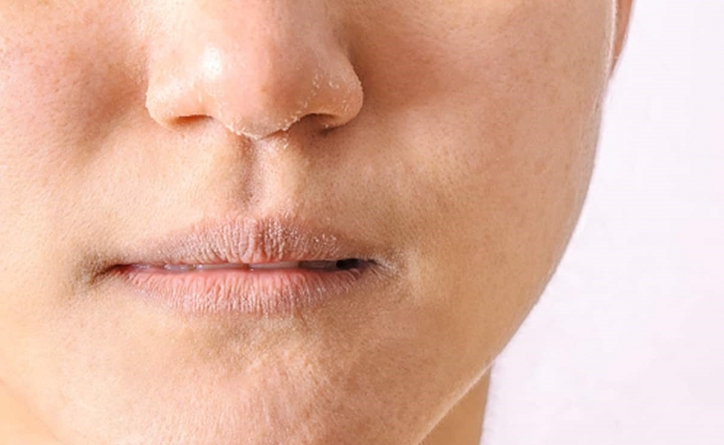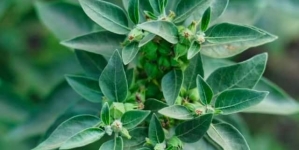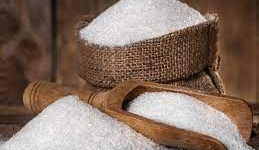-
LONDON: Indian-Origin Teen In UK Gets “Life-Changing” Cancer Treatment - April 25, 2024
-
SILICON VALLEY: All About Pavan Davuluri, New Head Of Microsoft Windows - April 25, 2024
-
LONDON: UK’s India Gate To Commemorate Role Of Indian Soldiers From World Wars - April 24, 2024
-
HARARE: Shri Bramha Kumar appointed as the next Ambassador of India to the Republic of Zimbabwe - April 23, 2024
-
LONDON: Indian-Origin Principal Wins UK Legal Challenge Over School Prayer Ban - April 23, 2024
-
TORONTO: Indian-Origin Doctor Needs ₹ 2 Crore For Legal Fees. Elon Musk Responds - April 22, 2024
-
KINSHASA: India-Democratic Republic of Congo Foreign Office Consultations - April 21, 2024
-
LONDON: UK Court Allows Sale Of Nirav Modi’s Luxury London Apartment - April 21, 2024
-
TEHRAN: Travel advisory for Iran and Israel - April 20, 2024
-
LUXEMBOURG: Shri Saurabh Kumar concurrently accredited as the next Ambassador of India to the Grand Duchy of Luxembourg - April 20, 2024
NEW DELHI: Skincare Tips: Try These Ayurvedic Remedies To Manage Dry Skin This Winter
NEW DELHI: Ayurvedic herbal remedies are traditional healing practices originating from India. They utilise natural substances such as herbs, minerals, and oils to promote overall health and well-being. Ayurveda believes in balancing the body, mind, and spirit to achieve optimal health.
Ayurvedic herbal remedies can indeed help manage skin health. Ayurveda recognises that healthy skin is a reflection of overall wellness. These remedies focus on nurturing the skin from within to address various skin issues, including dryness.
In winters, when skin tends to become dry and lose moisture, Ayurvedic remedies can be particularly beneficial. In this article, we discuss some simple Ayurvedic remedies you can incorporate into your routine for better skin heath and to reduce skin dryness during winter.
Some common Ayurvedic remedial tips that can be used for managing skin dryness in winter:
- Choose moisturising herbs
Look for Ayurvedic herbs that are known for their moisturising properties such as aloe vera, sesame oil, coconut oil, and shea butter. These herbs help to retain moisture and prevent dryness.
- Oil massage
Regularly massage your body with warm sesame oil before bathing. This will not only help to moisturise your skin but also improve blood circulation and nourish the body.
- Lukewarm baths
Avoid hot showers or baths as they can strip your skin’s natural oils. Instead, opt for lukewarm baths or showers, and limit the time spent in water to prevent excessive drying.
- Gentle cleansing
Use gentle, natural cleansers that do not contain harsh chemicals or fragrances. Look for products with ingredients like neem, tulsi, or sandalwood, known for their cleansing and hydrating properties.
- Hydrate from within
Stay well-hydrated by drinking plenty of warm fluids such as herbal teas, warm water with lemon, or soups. This helps to moisturise the skin from the inside out.
- Herbal face masks
Use Ayurvedic face masks made with moisturising herbs like rose petals, turmeric, or honey. Apply it to your face once or twice a week to nourish and hydrate your skin.
- Ayurvedic diet
Follow a dosha-balancing diet to maintain overall health and prevent skin dryness. Include foods like ghee, almonds, avocados, and sweet juicy fruits in your diet.
- Protect from harsh weather
Wear protective clothing, including scarves, hats, and gloves, to shield your skin from the cold, dry air. This helps to prevent moisture loss and keep your skin hydrated.
- Humidify indoor air
Invest in a humidifier or place a bowl of water near your heating source to increase moisture in the air. This prevents dryness, especially when indoors for longer durations.
- Avoid hot and spicy foods
Reduce the intake of spicy and heating foods during winter as they can aggravate dryness. Instead, opt for warm, nourishing, and easily digestible meals to balance your body and skin.
Remember to consult an Ayurvedic practitioner before using any specific herb or remedy to ensure it is suitable for your body type and any pre-existing conditions.























